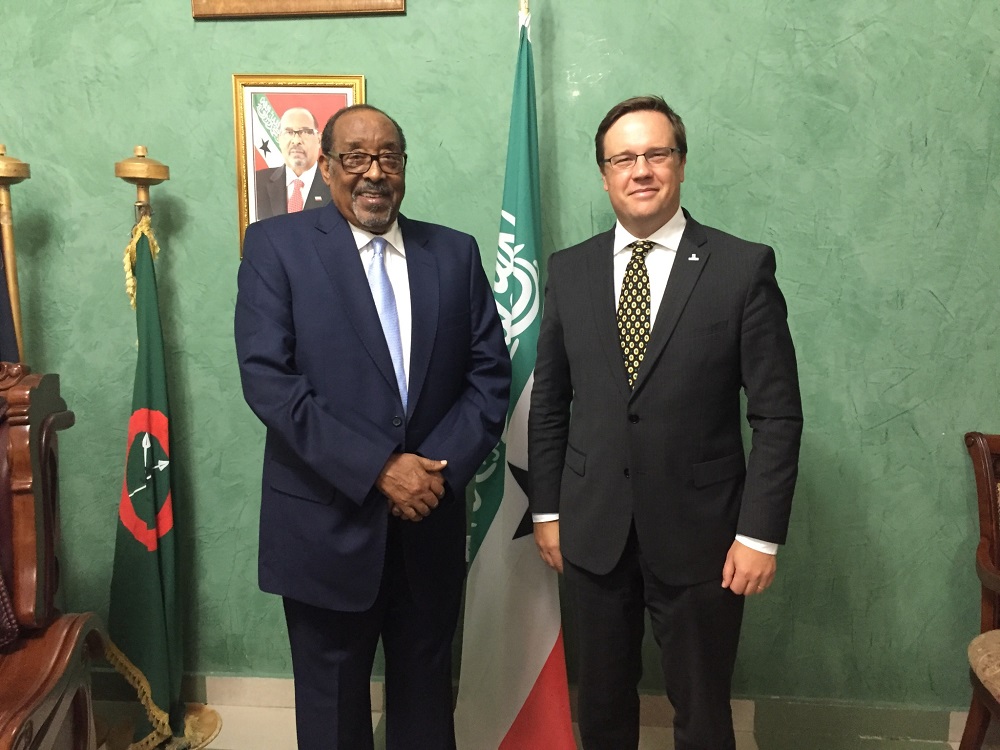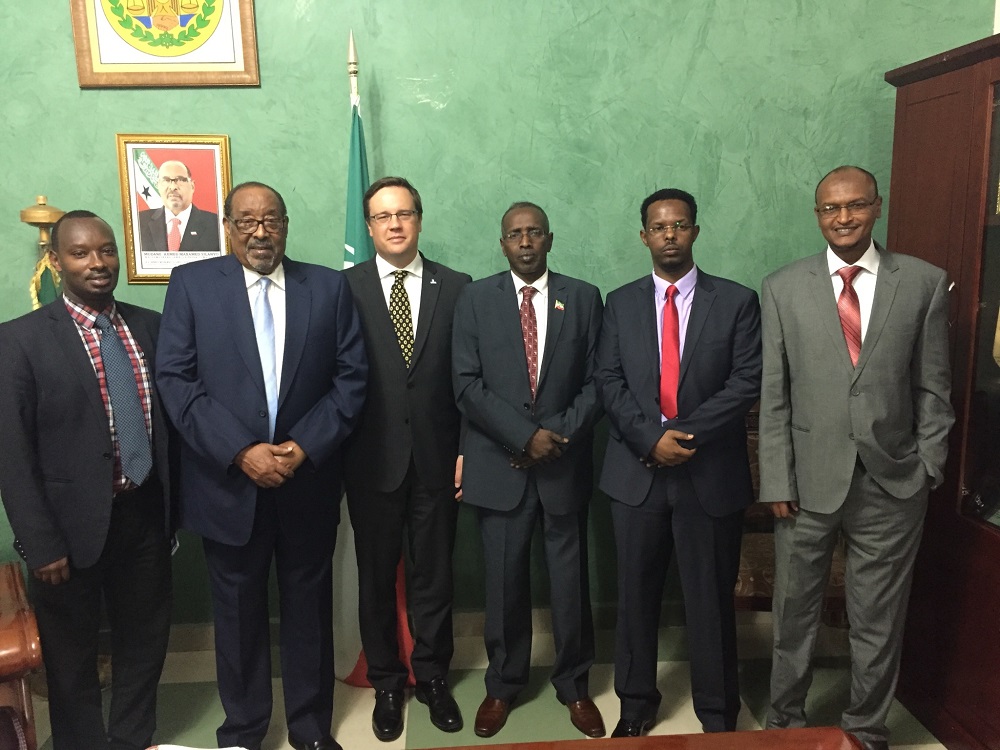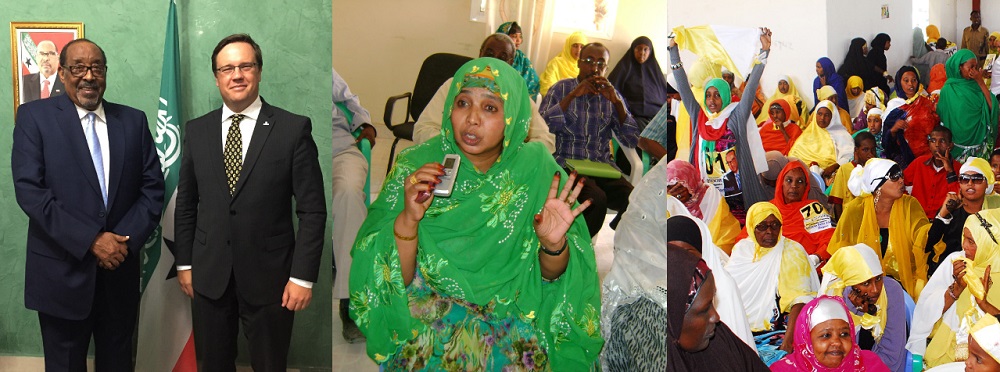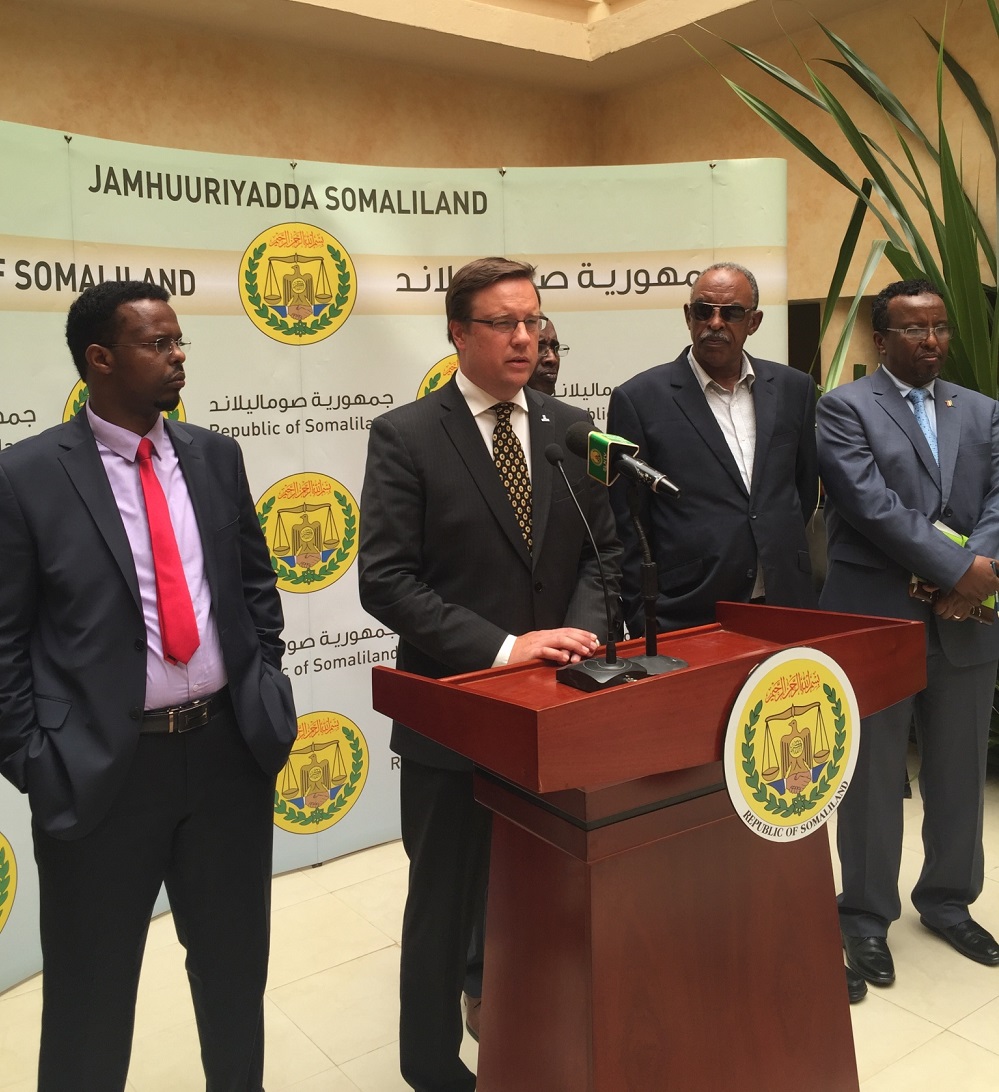Meeting the President of Somaliland: Interpeace’s Track Six Approach

In all its peacebuilding programmes around the world, Interpeace applies a approche Track 6 that establishes connections between local communities, civil society, government and the international community. This approach combines peacebuilding at the Track 1, Track 2 and Track 3 levels, ensuring that high-level policies reflect local realities and benefit from local knowledge. This contributes to the legitimacy and sustainability of the policies developed and adopted.
Interpeace’s work in Somaliland offers a clear example of the Track 6 approach. The organization has since 2005 worked closely with its Somaliland partner, the Academy for Peace and Development (APD), to support Somaliland’s democratic process. This partnership has ensured the placement of local populations and civil society at the centre of peacebuilding efforts, enriching Somaliland’s democratization process by providing spaces for dialogue, reconciliation, and ultimately, state building.
On the high level spectrum of the Track 6 approach, Interpeace engages policy and decision makers at the national and international level. A recent example was when on 24 August 2016, President Ahmed Mohammed Mohamud Silanyo of Somaliland held audience with an Interpeace delegation led by Director-General Scott Weber, accompanied by Interpeace’s Regional Director for Eastern and Central Africa (ECA), Jean-Paul Mugiraneza; Mohamed Farah, the Director of Interpeace’s partner organization, APD; and Interpeace’s Democratization Advisor Khadar Guleid.

President Ahmed Mohammed Mohamud Silanyo of Somaliland with the Interpeace delegation led by Director-General Scott Weber. Photo credit: Interpeace
During the meeting, President Silanyo appreciated Interpeace’s work in Somaliland over the last 20 years.
“We view you [Interpeace] as one of our closest and most understanding allies, and are deeply grateful for the support and assistance you have provided at such crucial moments as during the 2010 election, and again today as we approach another landmark election. We very much value the role you play in Somaliland, which we feel is crucial to ensuring peace, harmony and prosperity to our people,” President Silanyo said.
While discussing the positive transformations that have taken place in Somaliland, the President also took the chance to articulate the work that remains to be done: strengthening the democratization process, revising the Constitution and preventing border conflicts. Efforts are now centred on the preparations for the presidential elections, which will be held on March 2017. The voter registration process has been underway since the Somaliland National Electoral Commission (NEC) launched a biometric voter registration process in January 2016, with technical support from Interpeace and APD. Interpeace and its partner organizations continue to work with the community, civil society and the Federal Government to ensure that the elections are just, free and fair.
Mr. Weber later met with the Speaker of Somaliland’s Parliament, the Minister of Planning, the Minister of State for Security and the Deputy Minister of Foreign Affairs.


